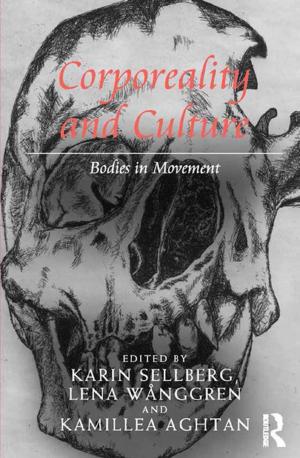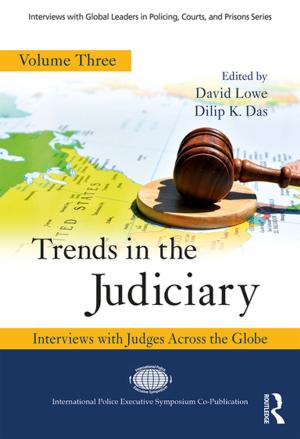History and Climate Change
A Eurocentric Perspective
Nonfiction, Science & Nature, Science, Earth Sciences, Geography, Social & Cultural Studies, Political Science, History| Author: | Neville Brown | ISBN: | 9781134977581 |
| Publisher: | Taylor and Francis | Publication: | June 29, 2005 |
| Imprint: | Routledge | Language: | English |
| Author: | Neville Brown |
| ISBN: | 9781134977581 |
| Publisher: | Taylor and Francis |
| Publication: | June 29, 2005 |
| Imprint: | Routledge |
| Language: | English |
History and Climate Change is a balanced and comprehensive overview of the links between climate and man's advance from early to modern times. It draws upon demographic, economic, urban, religious and military perspectives. It is a synthesis of the many historical and scientific theories, which have arisen regarding man's progress through the ages.
Central to the book is the question of whether climate variation is a fundamental trigger mechanism from which other historical sequences develop, or one amongst a number of other factors, decisive only when a regime/society is poised for change. Evidence for prolonged climate change is not that extensive. But it is clear that climatic variation has regularly played a part in historical development. Paricular attention is here paid to Europe since AD 211.
Cold and warmth, wetness and aridity can create contrary reactions within societies, which can be interpreted in vary different ways by scholars from differenct disciplines. Does climate change exacerbate famine and epidemics? Did climate fluctuation play a part in pivotal historical events such as the mass exodus of Hsuing-nu from China, the pressure of the Huns on the Romans and the genesis of the Crusades? Did the bitter Finnish winter of 1939-40 ensure the ultimate defeat of Hitler? These episodes, and many others are discussed throughout the book in the authors distinctive style, with maps and photographs to illustrate the examples given.
History and Climate Change is a balanced and comprehensive overview of the links between climate and man's advance from early to modern times. It draws upon demographic, economic, urban, religious and military perspectives. It is a synthesis of the many historical and scientific theories, which have arisen regarding man's progress through the ages.
Central to the book is the question of whether climate variation is a fundamental trigger mechanism from which other historical sequences develop, or one amongst a number of other factors, decisive only when a regime/society is poised for change. Evidence for prolonged climate change is not that extensive. But it is clear that climatic variation has regularly played a part in historical development. Paricular attention is here paid to Europe since AD 211.
Cold and warmth, wetness and aridity can create contrary reactions within societies, which can be interpreted in vary different ways by scholars from differenct disciplines. Does climate change exacerbate famine and epidemics? Did climate fluctuation play a part in pivotal historical events such as the mass exodus of Hsuing-nu from China, the pressure of the Huns on the Romans and the genesis of the Crusades? Did the bitter Finnish winter of 1939-40 ensure the ultimate defeat of Hitler? These episodes, and many others are discussed throughout the book in the authors distinctive style, with maps and photographs to illustrate the examples given.















